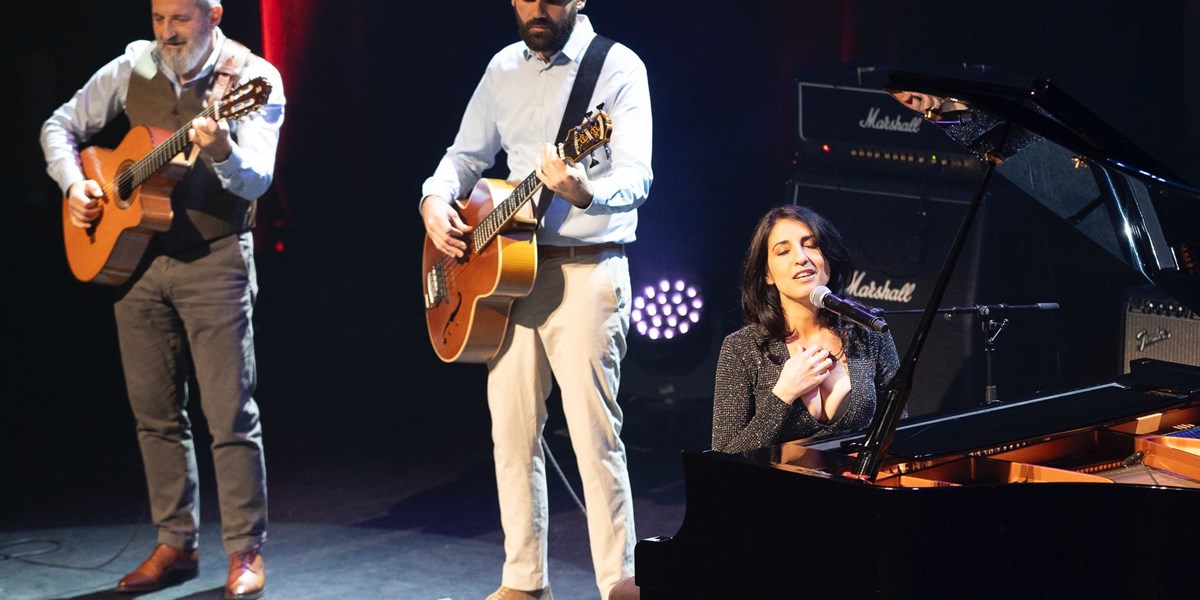Thursday, January 30, 2025
Lexicons of Love: Report from Liet International
By Jo Frost
Corsica hosts Liet International, a song contest dedicated to Europe’s lesser-known languages. Jo Frost speaks to 2024's winner, Nani Vazana

Europe may be home to 24 official languages, but in total, there are well over 200 languages spoken across the continent – with UNESCO estimating that 221 of the least-spoken are in danger of vanishing. One event that showcases its myriad tongues is Liet International, a biennial song contest for European regional and minority languages. ‘Liet’ means ‘song’ in Frisian, the language spoken in Friesland, in the north of the Netherlands, where the event was first launched as part of the annual Frisian Song Festival. For its tenth edition in 2014, the organisers wanted to expand it and provide an international platform for musicians performing in other minority languages. Liet’s international co-ordinator is Tjallien Kalsbeek, a native Frisian speaker: “It was such a success, and everybody was so happy, both in our region as well as the participants from other regions”, she says.
Over the years, Liet has become an itinerant event and showcased many of Europe’s lesser-known languages, including Arbëresh, Asturian, Cornish, Faroese, Friulian, Karelian, Manx, Meänkieli and Vepsian.
The winning artist at the latest and 14th edition, held in Corsica on November 22, was the singer-songwriter Nani Vazana, whose winning work was ‘Una Segunda Piel (A Second Skin)’, sung in Ladino. The language of Sephardic Jews from North Africa and the Iberian peninsula, it is estimated that between 60,000 and 200,000 people still speak Ladino. “It was brought to the Netherlands with the Portuguese Jews, so in a way, it is a heritage language of the Netherlands”, says Vazana, who has lived there for 17 years. Vazana’s link with Ladino was via her late Moroccan grandmother, but it was only during a trip to Morocco in her late 20s that she reconnected with the language. “When I write in English or in Hebrew, I censor myself; I’m cynical. When you write in a language that you only spoke when you were a kid with your grandmother, it brings out a different side of you. I wrote my happiest songs in Ladino because it’s innocent, it brings out this inner child.”
Sadly, Vazana’s father passed away unexpectedly on the morning of the competition, but she was determined to carry on and perform. “I’m not a believer, but for some reason, I felt that his spirit was there with me, so I just sang the song to him. It’s a kind of irony that the song that connects me to him is a song in Ladino, as he forbade us to speak it at home.” Her song is about a Sephardic rite of passage – the transition of the soul into the afterlife. “For me, it’s a happy song, a celebration of life more than it is a mourning for death.”
Reflecting on the event some weeks later, Vazana is still understandably emotional and has very mixed emotions about her win. But as she concludes: “It’s important to have events like Liet International because it brings people together who are like-minded and together we have the power to change perspectives. They asked me afterwards, ‘How do you feel to win?’ And I said, we’re all winners, because we brought the languages together.”
+ Liet will next take place in 2026. More info at liet-international.com

